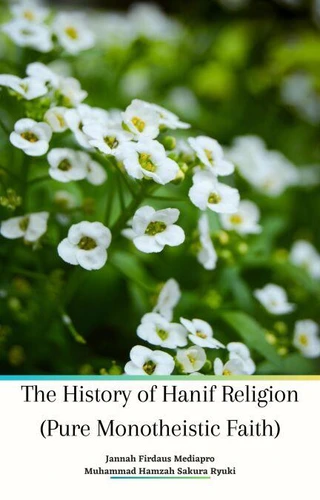The History of Hanif Religion (Pure Monotheistic Faith)
Par : ,Formats :
Disponible dans votre compte client Decitre ou Furet du Nord dès validation de votre commande. Le format ePub est :
- Compatible avec une lecture sur My Vivlio (smartphone, tablette, ordinateur)
- Compatible avec une lecture sur liseuses Vivlio
- Pour les liseuses autres que Vivlio, vous devez utiliser le logiciel Adobe Digital Edition. Non compatible avec la lecture sur les liseuses Kindle, Remarkable et Sony
 , qui est-ce ?
, qui est-ce ?Notre partenaire de plateforme de lecture numérique où vous retrouverez l'ensemble de vos ebooks gratuitement
Pour en savoir plus sur nos ebooks, consultez notre aide en ligne ici
- FormatePub
- ISBN8224570157
- EAN9798224570157
- Date de parution01/04/2024
- Protection num.pas de protection
- Infos supplémentairesepub
- ÉditeurVirtued Press
Résumé
Hanif religion refers to the pure monotheistic beliefs practiced by certain people before the rise of Islam, particularly in the Arabian Peninsula. These individuals, known as Hanifs, rejected polytheism and idol worship, instead following the teachings of Prophet Ibrahim AS (Abraham) and believing in the existence of One God. Although Hanifism didn't become a distinct religion, it influenced the development of Islamic theology.
The Noble Quran mentions Hanifs as upright individuals who upheld pure monotheism. Today, the term "Hanif" is mainly used in historical and religious contexts, highlighting the monotheistic tradition that predates Islam and emphasizing ethical conduct and devotion to Allah SWT (God).
The Noble Quran mentions Hanifs as upright individuals who upheld pure monotheism. Today, the term "Hanif" is mainly used in historical and religious contexts, highlighting the monotheistic tradition that predates Islam and emphasizing ethical conduct and devotion to Allah SWT (God).
Hanif religion refers to the pure monotheistic beliefs practiced by certain people before the rise of Islam, particularly in the Arabian Peninsula. These individuals, known as Hanifs, rejected polytheism and idol worship, instead following the teachings of Prophet Ibrahim AS (Abraham) and believing in the existence of One God. Although Hanifism didn't become a distinct religion, it influenced the development of Islamic theology.
The Noble Quran mentions Hanifs as upright individuals who upheld pure monotheism. Today, the term "Hanif" is mainly used in historical and religious contexts, highlighting the monotheistic tradition that predates Islam and emphasizing ethical conduct and devotion to Allah SWT (God).
The Noble Quran mentions Hanifs as upright individuals who upheld pure monotheism. Today, the term "Hanif" is mainly used in historical and religious contexts, highlighting the monotheistic tradition that predates Islam and emphasizing ethical conduct and devotion to Allah SWT (God).






















